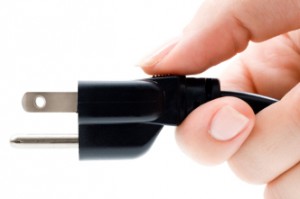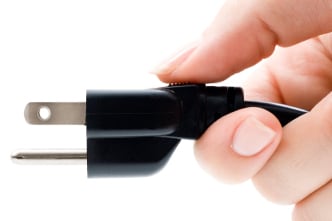During the recent YouthCon Informal Jewish Educators Convention presented by NCSY, Rabbi Dr. Gil Perl, Head of School of the Margolin Hebrew Academy in Memphis, Tennessee, presented a session, “Shabbat: A Day of Rest or Text? Fostering Spirituality in the Digital Age,” as part of the “Traditional Spirituality” track. During his presentation, he mentioned a new school-wide initiative he spearheaded to rethink the goals and needs of Jewish education in the 21st century. That initiative is “The Unplug Challenge.” Under the direction of Rabbi Perl, two of the faculty members of Margolin, Rabbi Noam Stein and Mrs. Liora Wittlin, prepared a description of “The Unplug Challenge,” to serve as a guide for other educators dealing with the phenomena of Shabbat texting among their students.
presented by NCSY, Rabbi Dr. Gil Perl, Head of School of the Margolin Hebrew Academy in Memphis, Tennessee, presented a session, “Shabbat: A Day of Rest or Text? Fostering Spirituality in the Digital Age,” as part of the “Traditional Spirituality” track. During his presentation, he mentioned a new school-wide initiative he spearheaded to rethink the goals and needs of Jewish education in the 21st century. That initiative is “The Unplug Challenge.” Under the direction of Rabbi Perl, two of the faculty members of Margolin, Rabbi Noam Stein and Mrs. Liora Wittlin, prepared a description of “The Unplug Challenge,” to serve as a guide for other educators dealing with the phenomena of Shabbat texting among their students.
Rabbi Stein teaches Judaic Studies and serves as the Director of Student Life at the boys and girls high schools of the Margolin Hebrew Academy/Feinstone Yeshiva of the South in Memphis. Mrs. Wittlin teaches Judaic Studies in the girls high school and serves as the Junior High mechanechet. Rabbi Perl has been Head of School for the past four years. Before heading for Dixie, he was the Associate Head of School at Yeshiva University High School for Boys as well as instructor of Jewish History at Yeshiva College.
The subject of Orthodox teenagers using their cell phones to text one another on Shabbos has received some publicity of late. Many parents, teachers, and youth group leaders are quite concerned about this apparently widespread phenomenon, known casually as “keeping half-Shabbos,” which seems to be prevalent even among otherwise observant teens. There are a number of factors which might contribute to the practice, and therefore it is difficult to know how best to address the problem. Some possible contributing factors are confusion about the halachic status of texting on Shabbos, boredom on Shabbos, social pressure, and a lack of appreciation for the atmosphere that Shabbos is supposed to provide. One additional possibility is that teens are addicted to texting and presumably unable to stop texting on Shabbos. Titillating as this possibility might be, the mental health community has yet to determine whether pathological addictions to texting or other electronic media actually exist.
However, regardless of clinical diagnostic categories, it is, we believe, safe to say that many people, adults, teens, and preteens alike, spend a lot of time surfing the web, texting, tweeting, bbming, facebook messaging, status updating, and some of us older folks still send an email or two. That being the reality, many of us spend much less time unplugged than is probably healthy. In this environment, it seems to be critical to reassert the importance of Shabbos as a day of unplugging, a day when we detach from the news, sports scores, Angry Birds, and even our friends on other continents to focus on ourselves, our relationships with those around us, and ultimately our connection with G-D.
In thinking about these issues, we developed a preliminary program for high schools called “The Unplug Challenge,” loosely based on an initiative of the same name sponsored by the non-denominational Sabbath Manifesto project. The goal of the program is to help students (re)discover the benefit of spending time away from technology and focusing on the physically and temporally present. Our hope is that this can be accomplished without lecturing teens about the ways in which their generation is inferior because they have short attention spans, cannot communicate in full sentences, etc. etc. In fact we hope this can be accomplished without lecturing them at all, but by engaging them in a reflective process, and then giving them the opportunity to use their technology skills to engage others in an ongoing conversation about the great benefits of and proper limits for our ubiquitous communication capabilities.
The core of the program is a challenge to spend one 24-hour weekday completely disconnected from all forms of technology. In order to help students process the experience, they will keep a reflective journal. They will track their expectations before the challenge, their experiences during the 24-hour period (they will have to use pen and paper!), and their thoughts after the challenge is complete. Students will also meet in groups before and after the challenge so that a dialogue is opened up in the school community about these issues. As an end product, the groups will plug back in and produce commercials aimed at promoting the observance of “full shabbos” and post them on YouTube. Hopefully, this will serve to reinforce the message that there are myriad ways that communication technology is beneficial while simultaneously engaging the students in a larger conversation with their peers around the world about the proper limits of constant connectedness.
This latter piece is key. Though it may seem counter-intuitive at first blush to ask students struggling with their own ability to unplug to become leaders of a broader movement advocating such an ideal, doing so may well provide the sense of excitement, mission, and purpose many of our kids are lacking. Our hope is that by tapping into a world beyond that of Orthodox Judaism which sees the values espoused by Shabbat observance as an asset rather than a liability, they will come to take pride in what they have and see it as the gift it truly is. And, by harnessing the potential for positive feedback through YouTube and other social media, they will come to realize that if others value their message perhaps they, themselves, can find value in it as well.
The words of this author reflect his/her own opinions and do not necessarily represent the official position of the Orthodox Union.
